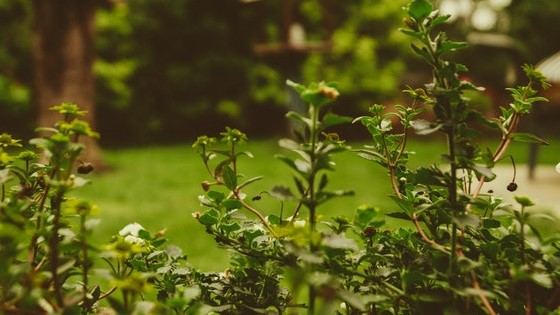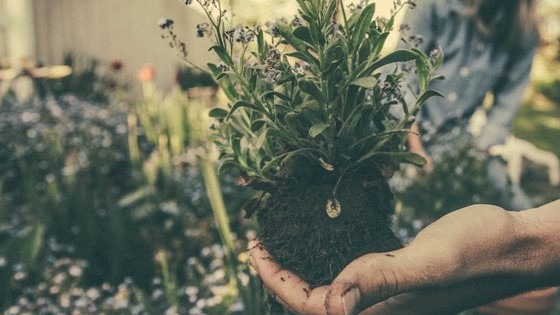Keeping gardening maintenance as simple as possible is easier said than done. However, the right advice can really save you time and effort. Some of these tips might seem simple, and you are probably already doing some of them, but it is always good to know what you are doing right and learn some new tricks.
Soil
In order to maintain a healthy garden, you need to start with healthy soil. Turning the dirt once a month is a minimum you need to do.
If your soil is hard, however, it will need added attention to ensure the ground can breathe. You will need to open space in your soil if you want plants to flourish, as it aids water absorption.

Water
Watering when the air is cooler is always the best practice. At peak daytime temperatures (usually 10 AM – 4 PM), a lot of the water will be lost via evaporation. Try to water your plants in the morning or late in the day. The same applies to the settings on any sprinkler system you may have.
You probably won’t need to water flowers more than twice weekly, but it is often better to learn about the individual watering requirements of the flowers you have in your garden.
Your Lawn
The health of your lawn will depend on a few factors. The temperature, amount of water it gets and grass length and some of the most important things to keep an eye on.
You will want your grass to be a little longer in the summer months, at least 2 inches to protect the soil from the sun. Remember to mow your lawn only when it is dry.
Prevent Weeds Then You Will Have Less To Remove
Working to protect your garden from weeds doesn’t have to be a huge chore. Use mulch (woodchips) in your flower beds, which can stop weeds from having anywhere to grow. This also makes the area easy to maintain and requires less overall attention.
Use a trowel to remove weeds properly, as cutting them only solves the problem temporarily.

Make Sure Your Plants and Flowers Have Space
This is vital for your plants’ survival, and they can all thrive if they have the room to do so. The less than they have to compete for space, the more access they have to sunlight, so they will be easier to maintain and require less attention if you create some room for them.
The same applies to water; too many plants bunched together may not all get what they need.
Pest Protection
Of course, you can do all the hard work that time will allow, but if the likes of slugs have free roam of your garden, maintaining your garden will be even more challenging.
Using a slug repellant can help, and even spreading salt around your plants can deter them. Otherwise, keep the area dry when you can, and spread sand around the areas that concern you. Slugs don’t like the texture or the dryness.
If you plan ahead and get into good habits, garden maintenance can be simpler than you’d imagi
 Kaboutjie SA Mommy Blogs by Lynne Huysamen
Kaboutjie SA Mommy Blogs by Lynne Huysamen




